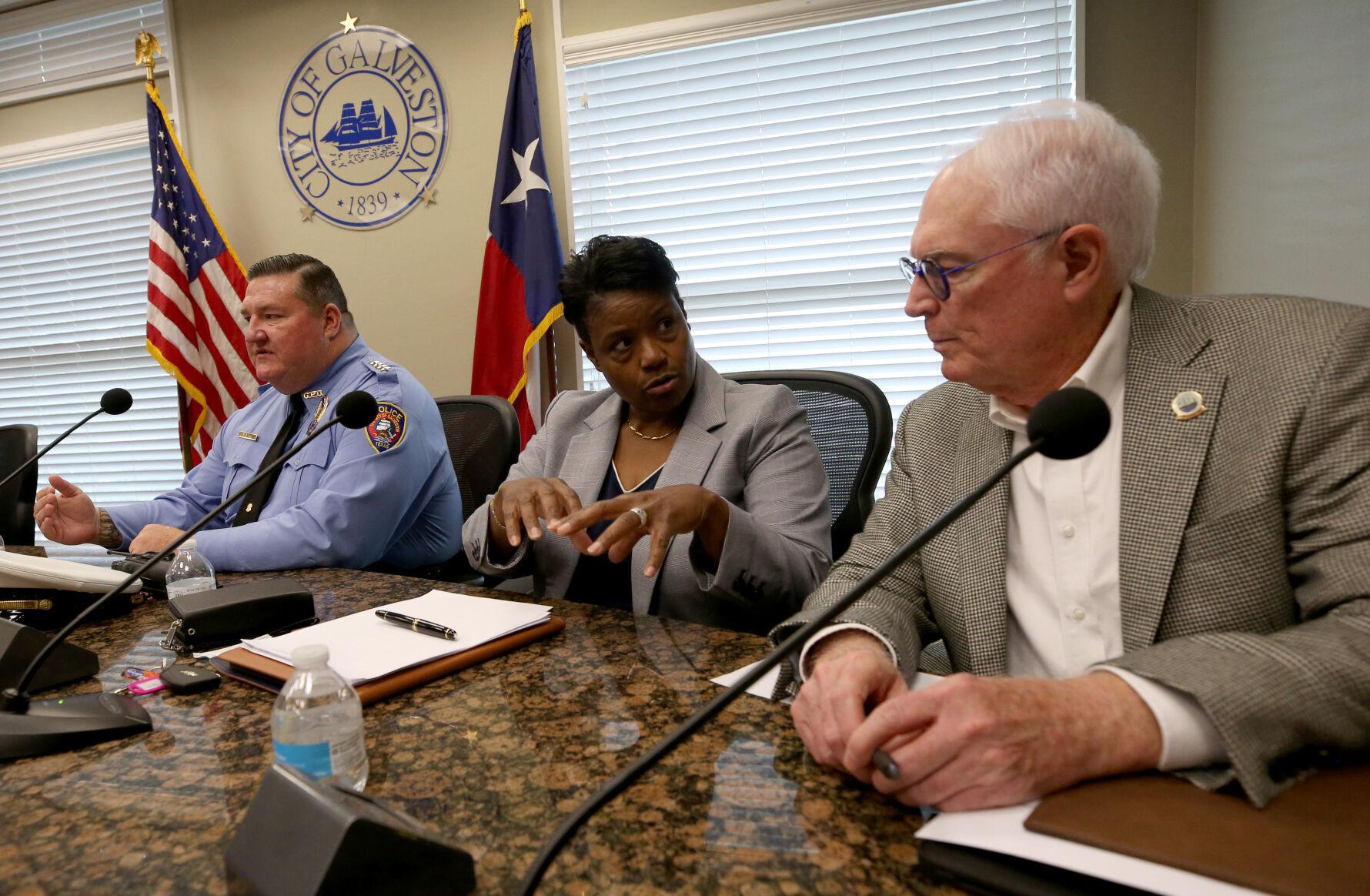Editorial: It's time for the state to step up on mental health care

Felicia Jeffery, center, CEO at the Gulf Coast Center, talks with Galveston Mayor Craig Brown about the availability of mental health beds on Thursday. A roundtable discussion was held including Galveston Police Chief Doug Balli, left, to announce the launch of a multi-disciplinary response team for mental health calls.
The city of Galveston this week took a big step toward fixing a badly broken system of responding to the mentally ill in a crisis. It’s a system that can and must be fixed and the city’s initiative is a well-considered and significant start.
But fixing this problem requires more than lip service from Texas’ highest offices. It demands unrelenting pressure from Texans to spur the necessary financial and moral support.
The city, with the support of Pew Charitable Trusts and a half-dozen local organizations, announced Thursday it would establish a response team made of mental health professionals, paramedics, and specially trained law enforcement officers, whose goal will be to provide help during a mental health crisis.
To be clear this isn’t a program to “defund” the police. It’s a solution involving city police, fire, and local mental health authorities and is meant to change how they respond to 911 emergency calls involving people with mental health or substance use problems.
It’s a program that helps police, people who are having a mental health crisis, and the general public.
The model, known as Multi-Disciplinary Response Team, will be rolled out in October in Galveston with a mission to transform mental health emergency response and bring that transformation to scale in cities across Texas.
Responding to the mentally ill is a significant, complex, and challenging part of policing today that puts all parties in danger. And when police arrest people in need of mental health care, there usually is little recourse but to jail them.
Eventually, they’ll find themselves back home or on the streets, still suffering from the problems that required police intervention. It’s a vicious cycle and one that demands a different attitude and approach and, most importantly, new resources.
Galveston’s program wouldn’t be possible without the financial support of Pew Charitable Trusts, which contributed a $325,000 challenge grant to the pilot program. Local organizations — The Moody Foundation, Mary Moody Northen Endowment, The Permanent Endowment Fund of Moody Methodist Church, Ippolito Charitable Foundation, Harris & Eliza Kempner Fund, and the Cynthia and George Mitchell Foundation — together contributed about $422,500 to get the program underway.
Texas long has done a disservice to the mentally ill, evident in the lack of beds and treatment options that force our jails to warehouse thousands of people whose crimes are mostly the product of unsound minds.
In Oct. 2021, more than 1,800 Texans who had been recommended for the state’s mental health system were waiting in jail, KXAN-TV said in an investigative report in December last year.
State lawmakers a year ago made a momentous move in expanding Texas’ psychiatric hospital system by pumping nearly $400 million into projects that would add more than 500 inpatient psychiatric beds across the state, as well as revamp old hospitals for mentally ill Texans, according to reports.
That’s laudable to an extent, but consider Texas will have a budget surplus of about $12 billion ahead of the next legislative session. Another $12 billion or so is in the state’s Economic Stabilization Fund, commonly called the Rainy Day Fund.
Those huge pots of money exist, in part, because the state has for decades pushed societal responsibilities such as caring for the mentally ill, and the related costs, down onto county and municipal governments.
That’s how county and municipal jails became some of the leading providers of mental health services in Texas and it’s a travesty.
It’s time for state leaders to fund those old unfunded mandates and putting some real money into mental health care would be an excellent place to start.
A state so awash in money can’t claim poverty.
Laura Elder is managing editor of The Galveston Daily News.

NEWS
Hide Full Index
Show Full Index
View All News